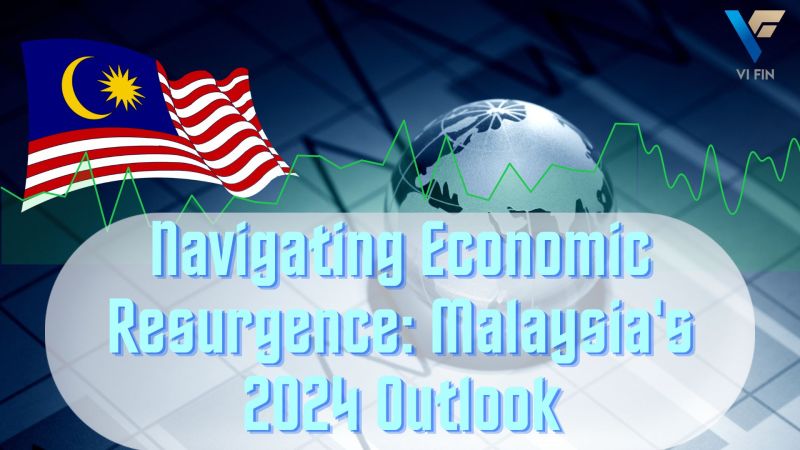
𝐒𝐭𝐫𝐚𝐭𝐞𝐠𝐢𝐜 𝐏𝐥𝐚𝐧𝐧𝐢𝐧𝐠 𝐓𝐢𝐩𝐬 𝐭𝐨 𝐆𝐫𝐨𝐰 𝐘𝐨𝐮𝐫 𝐁𝐮𝐬𝐢𝐧𝐞𝐬𝐬, 𝐀𝐜𝐡𝐢𝐞𝐯𝐢𝐧𝐠 𝐘𝐨𝐮𝐫 𝐂𝐚𝐫𝐞𝐞𝐫 𝐚𝐧𝐝 𝐅𝐢𝐧𝐚𝐧𝐜𝐢𝐚𝐥 𝐆𝐨𝐚𝐥𝐬
Malaysia envisions a prosperous 2024 with GDP growth forecasted to range from 4-5%, building on the resilient domestic demand seen in both the private and public sectors. The country’s economic bounce-back is evident in various sectors, such as tourism, which has witnessed a remarkable recovery, reaching 70% of pre-pandemic levels. Regional tourists from Singapore, Indonesia, and Thailand have played a pivotal role, with Q3 tourism receipts hitting 88% of the 2019 quarterly average.
The economic upswing is anticipated to gain further momentum through strategic initiatives like the RM 50 billion East Coast Rail Line and other national infrastructure projects. Labour markets are on an upward trajectory, witnessing a decline in unemployment to 3.4% and a 2.7% increase in the size of the labour force. These positive indicators contribute to an optimistic outlook, with overall salaries and wages expected to rise by 4.4%, reaching an average of RM 3,355 in 2023. The government’s progressive model, set to involve 1000 companies in a trial run from June to September 2024, offers a promising avenue for enhancing productivity and economic growth.
Furthermore, the government’s commitment to revamp vocational TVET programs aligns with market needs under the National Industry 4.0 Policy (NIMP) 2030. Opportunities in high-growth high-value (HGHV) green and energy sectors are buoyant, driven by progress on flagship projects under the National Energy Transition Roadmap (NETR).
While Malaysia anticipates economic resurgence, challenges persist, especially concerning the ringgit’s performance. Having endured one of its worst years in 2023, facing historic lows against major currencies, the ringgit’s fortunes are intricately tied to the stabilization of rates by the Federal Reserve and improved economic conditions in China. The decision to keep the ringgit floating reflects a prudent approach, allowing market forces to determine its value amidst changing conditions.
The optimistic outlook, however, remains contingent on international relations and domestic affairs. Geopolitical tensions have the potential to introduce volatility, disrupting external demand. As Malaysia navigates these uncertainties, continued negotiations on free trade agreements, such as the Asean-Canada Free Trade Agreement, become pivotal in supporting export markets.
Malaysia is positioned to focus domestically on fortifying its economic fundamentals, steering the nation towards a prosperous 2024. As the year unfolds, the resilience showcased in the face of past challenges serves as a beacon for Malaysia’s economic resurgence.
Source: The Malaysian Insight.
#VIFIN
#FinancialPlanning
#FamilyHolisticWealthness
#RetirementPlanning
#EconomicOutlook
